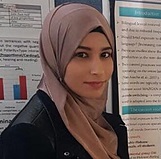Lab Members

Prof. Tamar Degani
I am a faculty member at the Department of Communication Sciences & Disorders and a member of the Haifa Brain and Behavior Hub at the University of Haifa in Israel. In my previous position I was a research fellow at the Institute of Information Processing & Decision Making and Department of Psychology at the University of Haifa. I completed my graduate studies in the Department of Psychology and the Center for the Neural Basis of Cognition at the University of Pittsburgh in 2011, under the mentorship of Dr. Natasha Tokowicz and was a member of the Plum lab.
Post Doctoral Researchers
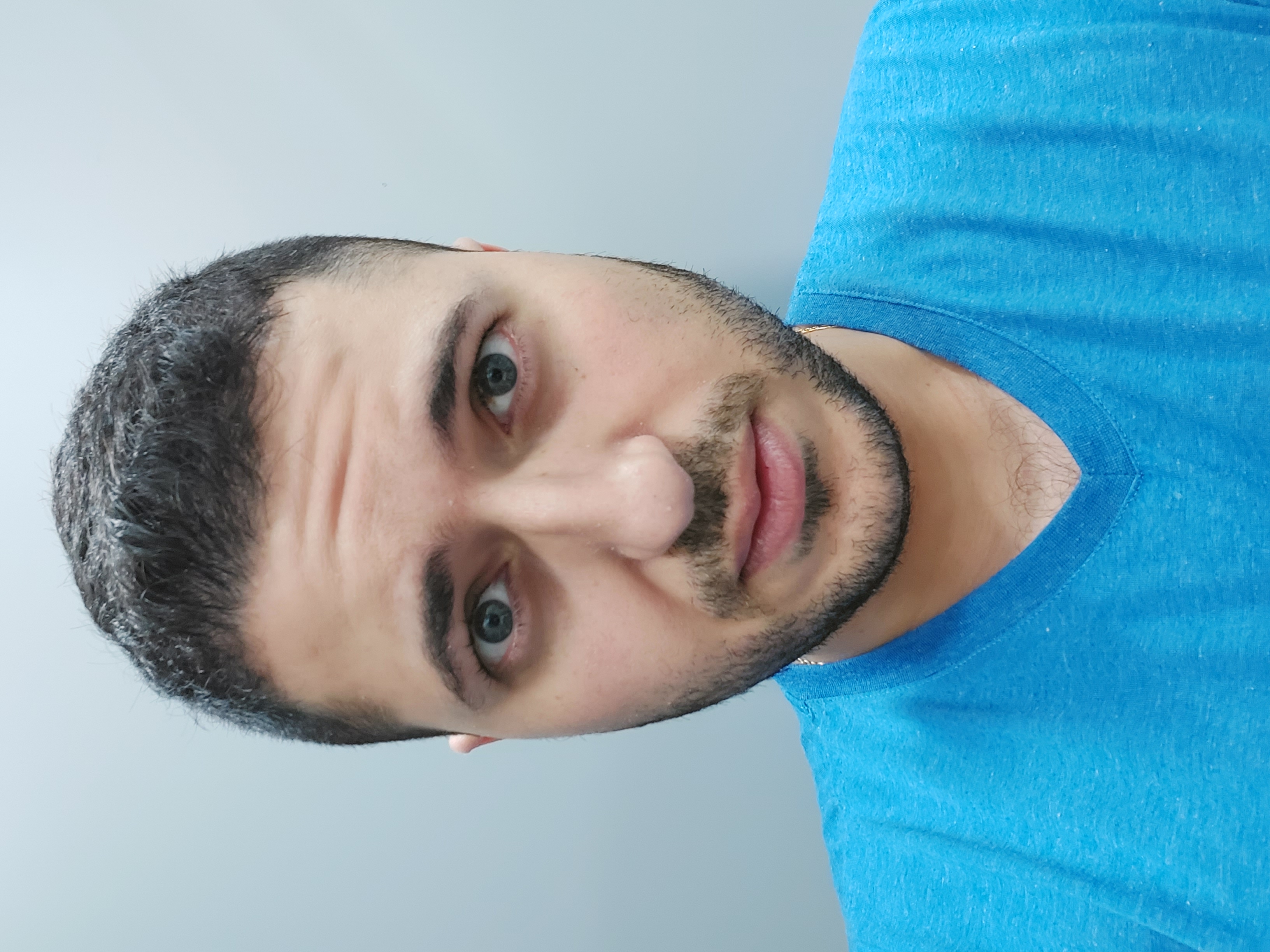
Dr. Ronald Shabtaev
I completed my PhD in Linguistics from Bar-Ilan University under the supervision of Prof. Sharon Armon-Lotem and Prof. Joel Walters. My PhD dissertation focused on heritage language attitudes and identities among Mountain Jewish immigrants from the Caucasus in Israel and the US. Other publications include a study of cross-generational differences in language use and code-switching among Mountain Jews in Israel, based on my master's thesis. I am currently a research fellow at The Institute for Immigration and Social Integration at Ruppin Academic Center.
PhD Students

Mariana Elias
I am a BA and MA graduate of the Department of Communication Sciences and Disorders, and currently a PhD student in the same department. My MA research, supervised by Dr. Tamar Degani examined foreign language (FL) vocabulary learning with a focus on ambiguity in the mapping of form and meaning across languages. Native Hebrew speakers learned cognate words, false-cognate words and unambiguous control words. The aim of the study was to answer the questions: are false-cognates easier or harder to learn than unambiguous control words? how does the newly acquired meaning of a shared form affect the processing of this form in the L1? and how individual characteristics modulate such FL learning. our results showed cognate facilitation in learning, but no overall difference between false cognates and controls. However, individual differences in phonological short-term memory and language proficiency modulated learning. In my PhD research, supervised by Dr. Tamar Degani and Dr. Anat Prior, we aim to identify patterns of lexical cross-linguistic influences amongst trilingual speakers, as a function of executive control capacities and language proficiency alterations. In a longitudinal design over the course of three years, Arabic-Hebrew-English trilingual students will participate in five experimental sessions from their first to third year of undergraduate studies while immersed in their second language (L2) environment.

Razan Silawi
I received my BA in psychology and education from the Hebrew University of Jerusalem, and my MA in learning disabilities from Haifa University, currently I'm a Phd student in the department of learning disabilities. My MA research was under the supervision of Dr. Anat Prior and Dr. Yasmin Shalhoub-Awwad, it focused on calibration during reading comprehension among undergraduates. Particularly, the main question was whether calibration of comprehension is a meta-cognitive ability that might be shared across languages and beyond specific language proficiency. Moreover, we assesed the development of calibration of reading comprehension throughout the academic career of Arabic native speakers in Arabic (L1), Hebrew (L2), and English (L3), by comparing first and third year students. The results showed evidences to calibration of reading comprehension as a domain general, and showed, almost, no differences between first and third year students. In my Phd research, which is under supervision of Dr. Anat Prior and Dr. Tamar Degani, we examine the cross-linguistic - syntactic- transfer of L1 (Arabic) and L2 (Hebrew) when processing L3 (English). The study highlights the role of executive control in transfer by including a group of individuals diagnosed with ADHD, in addition to assessing individual differences on executive control tasks. Moreover, the study further investigates the dynamics of transfer by comparing performance on language comprehension and production tasks.

Nawras Abbas
I am a BA graduate in Special Education and English Language and Literature, and an MA graduate in Learning Disabilities from the University of Haifa. Currently, I am a PhD student in the department of Learning Disabilities. My MA research, supervised by Dr. Anat Prior, examined interference from both languages; the first Arabic (L1) and the second Hebrew (L2), as opposed to interference from only one of the languages in third language (L3- English) syntactic processing, using grammaticality judgement task and eye-tracking measures. The central question addressed was whether L1 has a privileged role, or whether the entire linguistic repertoire is activated when processing L3. The results showed that learners of L3 have access to all previously acquired linguistic knowledge, and that the multilingual language system is fully interactive. My PhD research, supervised by Dr. Tamar Degani and Dr. Anat Prior, aims to investigate L3 syntactic processing and uncover how it is influenced by existing knowledge of other languages. In a longitudinal design, we intend to explore whether proficiency changes in L1, L2, or L3 are associated with varying patterns of cross linguistic influence (CLI) from L1/L2 in L3 syntactic processing.
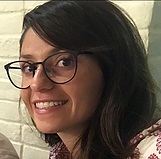
Zoya Kardashov
I completed my BA in Psychology and Human Resources and my MA in Cognitive Psychology at the University of Haifa. My MA research, supervised by Dr. Tamar Degani, examined the effect of Language of Instruction (LOI) on bilingual novel word learning. Specifically, Hebrew-English bilingual participants learned novel words in German through either their L1 (Hebrew) or through their L2 (English). The main research question was whether learning through participants' first, more proficient, language (Hebrew) or through the language that is more similar to the novel language (English). The learned words included three types: cognates, overlapping in form and meaning between English and German; false cognates, overlapping in form but not meaning; and controls. Results showed a significant LOI effect, with better learning through the (less similar) L1, especially for control items. Cognates were learned better in both LOIs, but false cognates were learned better relative to controls to a greater extent when the LOI was English (see Hirosh & Degani, 2021 Language Learning for more details). In my PhD research, supervised by Dr. Tamar Degani and Prof. Tali Bitan we aim to examine how variability in LOI (i.e., learning through both languages) affects learning. For this purpose, Hebrew-English bilinguals will learn German novel words through either their L1, their L2 or both L1 and L2.
MA Students

Yuval Tzabari
This email address is being protected from spambots. You need JavaScript enabled to view it.
I have completed my B.A. degree in the Department of Communication Sciences and Disorders at the University of Haifa. I work as a speech and language therapist with children with developmental disorders at a child developmental institute. My MA research, supervised by Prof. Rama Novogrodsky and Prof. Tamar Degani, investigates the effects of meaning variability on word learning among children with ASD. Understanding how variability during the learning phase affects word learning can provide more knowledge about vocabulary acquisition among children with ASD and support more effective clinical intervention.
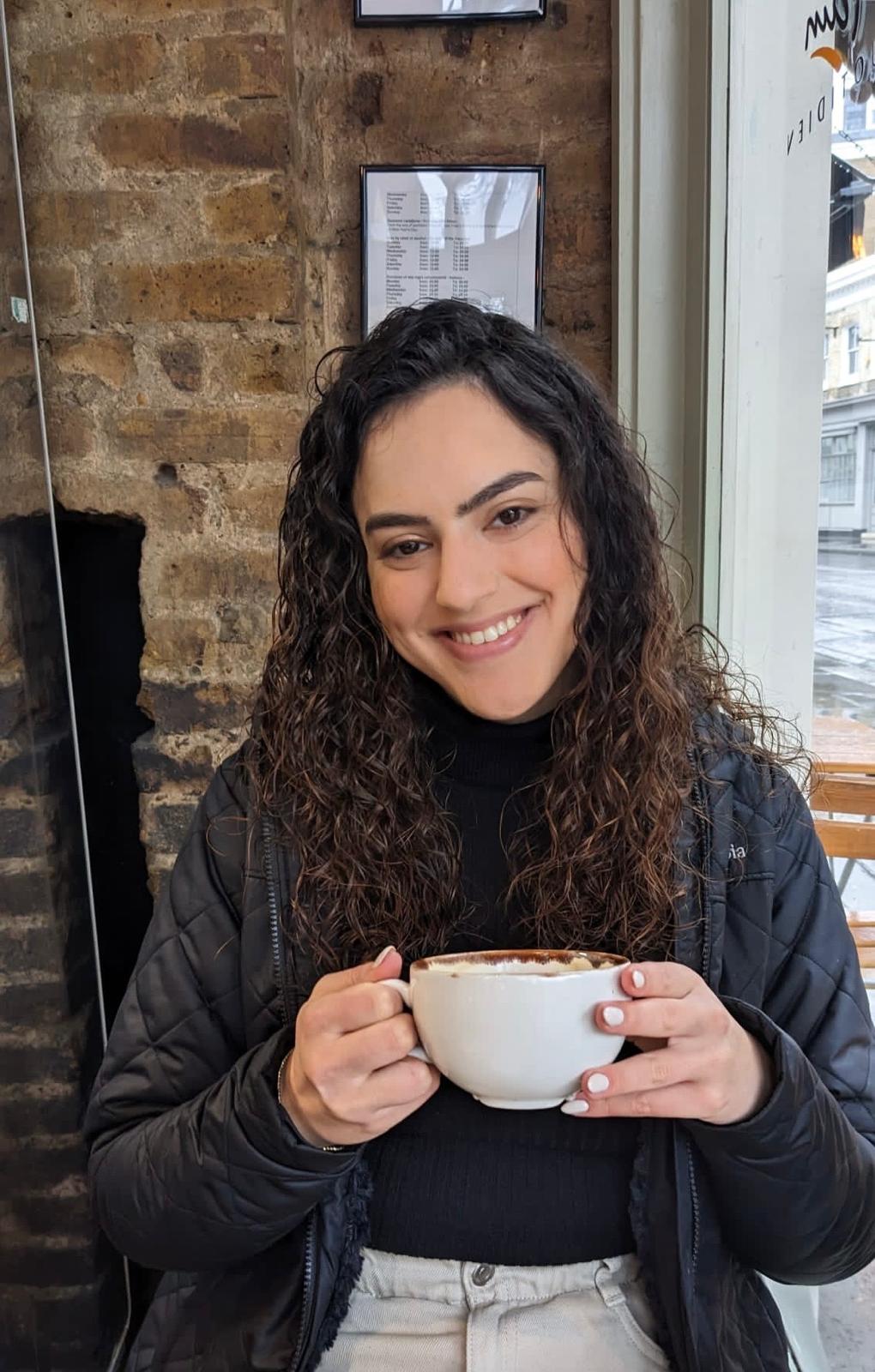
Tehila Malul
This email address is being protected from spambots. You need JavaScript enabled to view it.
B.A. graduate and M.A. student in the Department of Communication Sciences and Disorders at the University of Haifa. I am completing my thesis under the supervision of Dr. Tamar Degani and Prof. Anat Prior. My research focuses on language control and questions the influence of cognitive control on a language switching paradigm. In order to manipulate cognitive control abilities, we will recruit participants with and without ADHD, who will be asked to complete a series of linguistic and cognitive tasks.
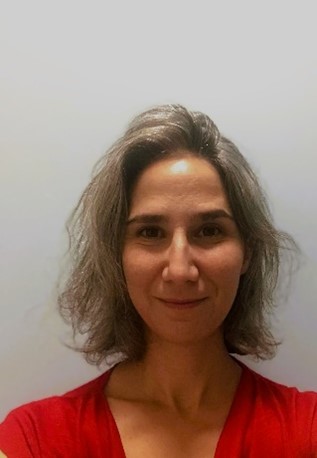
Yael Braver
This email address is being protected from spambots. You need JavaScript enabled to view it.
I am pursuing a MA in the Department of Communication Sciences and Disorders at the University of Haifa. Under the supervision of Prof. Rama Novogrodsky and Dr. Tamar Degani, my research investigates the impact of two learning modalities on novel word learning in children with Autism Spectrum Disorder (ASD) compared to their typically developing peers. This study involves cards and human interaction versus touchscreen technology without adult engagement. By examining learning outcomes across modalities, this research aims to contribute to understanding the learning processes of children with ASD.

Gal Reef
This email address is being protected from spambots. You need JavaScript enabled to view it.
I am currently completing my BA studies in the Department of Communication Sciences and Disorders at the University of Haifa. I am starting my MA degree in the same department, with my research supervised by Dr. Tamar Degani. We will be investigating how immersion and the environmental language plays into the effect of Language of Instruction (LOI) on bilingual novel word learning among English-Hebrew bilinguals and hope to shed more light on the explanation for the LOI effect (Language regulation proposal, Cognitive resources availability and Prior language learning experience).

Dana Sommerfeld
This email address is being protected from spambots. You need JavaScript enabled to view it.
I am a BA graduate in Communication Disorders from Hadassah Academic College Jerusalem. Currently, I am an MA student in the Department of Communication Sciences & Disorders at the University of Haifa. My research, supervised by Dr. Tamar Degani and Prof. Rama Novogrodsky, examines processes of word learning among children with Autism.
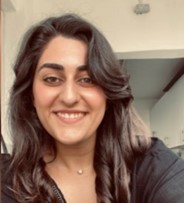
Lamees Natour
This email address is being protected from spambots. You need JavaScript enabled to view it.
I completed my BA degree in Psychology and Special Education for Students with Hearing Impairments at Tel Aviv University. In 2023, I completed a BA in the Department of Communication Sciences and Disorders at the University of Haifa. Currently, I am a second-year master’s student under the supervision of Dr. Tamar Degani and Dr. Hanin Karawani.
My thesis research studies the impact of age on listening effort among adults in various auditory environments, employing pupillometry as an objective measurement of listening effort. The study examines pupil size variations in Arabic-speaking adults performing sentence and word recognition tasks in their first language (Arabic- L1) and their second language (Hebrew- L2) under different listening conditions, i.e., quiet versus noise settings.
Research Assistants
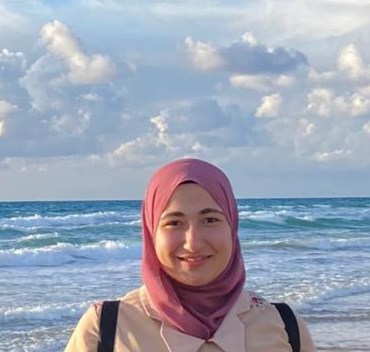
Hadeel Majadly
This email address is being protected from spambots. You need JavaScript enabled to view it.
I am a BA graduate from the Department of Communication Sciences and Disorders and a research assistant in the multilingual lab, and a certified Speech and Language Pathologist.
Visiting Graduate Students

Luz María Sánchez
Upon completing a BA in (theoretical) Linguistics at Leipzig University (Germany), I relocated to Brussels (Belgium), where I attained an MA in Linguistics and Literary Studies at the Vrije Universiteit Brussel (VUB). Currently, I am doing a three-month research stay at Haifa University, working together with Prof. Tamar Degani (Haifa University) on a study that focuses on the aftereffects of short exposure to the dominant or non-dominant language in Arabic-Hebrew bilinguals and speakers of standard and spoken varieties of Arabic in Israel. At my home university, the VUB, I am conducting my PhD project under the supervision of Professors Mathieu Declerck and Esli Struys, and co-supervision of Prof. David Peeters (Tilburg University). My project investigates language control in bilinguals through language switching. Specifically, I am interested in the effect of different interactional contexts on language control, and in using experimental setups with increased ecological validity. The project relies online and face-to-face testing, as well as Virtual Reality technology.
Lab Alumnae

Dr. Dana Bsharat-Maalouf
I completed my BA and MA studies in the Department of Communication Sciences and Disorders at the University of Haifa. Currently, I am starting my Ph.D. studies under the supervision of Dr. Hanin Karawani and Dr. Tamar Degani. My MA dissertation entitled “Learning and Bilingualism in Challenging Listening Conditions: How Challenging Can It Be?” examined factors that affect bilinguals in challenging listening conditions. Specifically, the study compared native Hebrew monolingual speakers’ performance to Arabic-Hebrew bilinguals, and bilinguals’ performance in first and second languages. Recall of wordlists and low and high predictability sentences were examined in quiet and noise conditions. In addition, the ability to perceive vocoded sentences and improvements throughout exposure to this kind of distortion was examined. Our findings provided insights into the bilingual mechanisms that play a role during speech performance in adverse listening conditions. Factors such as time of exposure to languages, the cognitive load associated with complex tasks, the ability to utilize top-down predictive processes, and benefit from exposure, appear to contribute to performance. In my Ph.D. research, we aim to study the complex construct of listening effort and the neural mechanisms that underlie speech processing. Specifically, examine subcortical and cortical physiological aspects of bilingualism using electrophysiological measures. These will be combined with the use of pupillometry to examine the listening effort.

Dr. Tal Norman
I completed my PhD in cognitive studies of language at Tel Aviv University under the supervision of Prof. Orna Peleg. During my graduate studies I perused two lines of research. My MA thesis examined L1-L2 morphological influences during visual word recognition at different stages of L2 acquisition – how processing strategies in the L1, shaped by the morphological structure of L1 words, affect L2 processing in beginner L2 learners and in proficient L2 readers. My PhD dissertation examined L1-L2 differences both in conceptual (i.e., simulation-based) processes and in hemispheric asymmetry during language comprehension, among proficient late bilinguals who learned and used their L2 primarily in formal settings – whether the comprehension of words and sentences evokes visual simulations of the verbal content to the same extent in the L1 and the L2; whether the two cerebral hemispheres differ in their ability to evoke visual simulations during L1 and L2 comprehension; and whether the two languages differ in the pattern of hemispheric involvement during natural reading. My research at the Multilingual Lab aims to further explore processing difference between the L1 and the L2 as a function of different factors such as age, L2 age of acquisition, L2 proficiency, L2 exposure, L2 learning profile, etc.

Rouba Haj Ali-Shker
I completed my BA studies at the Department of Communication Sciences and Disorders at Tel-Aviv University and am currently pursuing my MA degree at the University of Haifa. My current research, supervised by Dr. Tamar Degani, aims to investigate how individual differences in cognitive control/executive functions, phonological short-term memory, and language proficiency modulate learning words in a foreign language. In this research, Hebrew-English bilinguals will learn three types of Arabic words, which overlap in form and meaning (cognates), words that overlap with form and not meaning (false cognate) and controls. Participants’ working memory, inhibitory control, and cognitive flexibility will be measured, to see if and how these modulate learning of different types of words.

Shahar Shmuel
I am a BA graduate in Psychology and History from the University of Haifa, and currently I am a MA student in the department of Learning Disabilities. Over the past few years I have been involved in studies that have examined how fear learning, fear extinction and temperament affect the development of anxiety disorders in children, adolescents and adults. Today my thesis under the supervision of Professor Orly Rubinsten examines the effect of Threat and Math anxiety on Attention Allocation and Attention Bias.

Sahar Sheli
I am a BA student in Communication Disorders at the University of Haifa. I am a research assistant in the Multilingual Lab.















